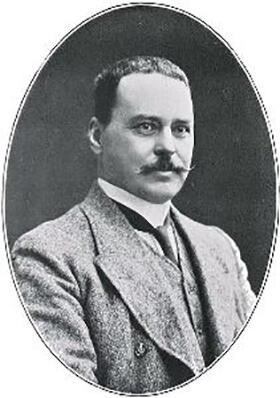
On 20 August 1897 Ronald Ross a British doctor stationed in India made the historic link that female mosquitoes transmit malaria between humans. The discovery earned Ross the Nobel Prize for medicine.
Declaring himself that this date be remembered as World Mosquito Day, his work was soon verified by a colleague, Surgeon-Major John Smyth and as a result Ross published his findings in the British Medical Journal.
Ross left the Indian Medical Service in 1899 to become the first senior lecturer, and subsequently Professor, at the Liverpool School of Tropical Medicine (LSTM), the first institution devoted to tropical medicine anywhere in the world. His work at LSTM led to many distinguished honours and numerous expeditions to Africa, Asia and South America.
Ronald Ross set the foundation for scientists at LSTM and around the world to make further discoveries and improved treatments for mosquito-borne diseases. Progress which has been blighted by insecticide resistance.
Malaria is transmitted via the bites of infected mosquitoes, and caused by a parasite called Plasmodium. If not treated, malaria can quickly become life-threatening by disrupting the blood supply to vital organs. In many parts of the world, the parasites have developed resistance to a number of malaria medicines and LSTM and partners worldwide are developing new ways challenge resistance.
According to the World Health Organization, 219 million cases of malaria are estimated to occur around the world each year. Resulting in 660,000 deaths,mostly in children under the age of five.
In an interview in support of World Mosquito Day, former Parliamentary Under Secretary of State at the Department for International Development, the Rt Hon Stephen O’Brien MP said: World Mosquito Day is a very welcome opportunity for the whole of us, as global citizens, to focus on the biggest prize available to the world today, in terms of saving lives and improving the conditions of children and communities in the most hard to reach and rural poor areas of the world.”
For more information please visit Malaria no More